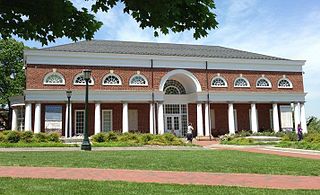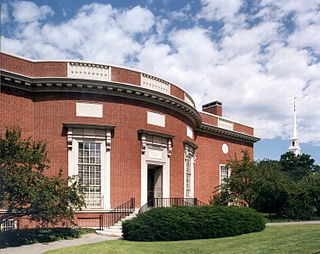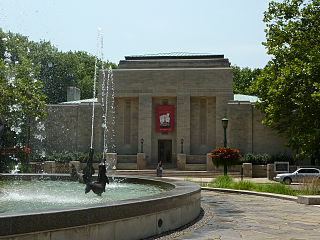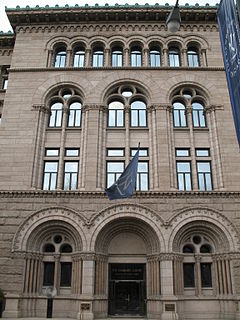 W
WLibraries have been deliberately or accidentally destroyed or badly damaged. Sometimes a library is purposely destroyed as a form of cultural cleansing.
 W
W56a Infoshop is a self-managed social centre, archive, and shop based in Elephant and Castle, Southwark, London. Its collection centres around left and far-left materials including information on anarchism, anti-gentrification, to squatting.
 W
WThe Ahmet Hamdi Tanpınar Literature Museum Library is a literary museum and archive dedicated to Turkish literature and named after the Turkish novelist and essayist Ahmet Hamdi Tanpınar (1901–1962). Located in Istanbul, Turkey, the museum was established by the Ministry of Culture and Tourism and opened on November 12, 2011.
 W
WThe Albert and Shirley Small Special Collections Library at the University of Virginia is a research library that specializes in American history and literature, history of Virginia and the southeastern United States, the history of the University of Virginia, Thomas Jefferson, and the history and arts of the book. The library is named after Albert and Shirley Small, who donated substantially to the construction of the library's current building. Albert Small, an alumnus of the University of Virginia, also donated his large personal collection of "autograph documents and rare, early printings of the Declaration of Independence." This collection includes a rare printing of the Dunlap broadside of the Declaration of Independence. Joining the library's existing Dunlap in the Tracy W. McGregor Collection of American History, Small's copy made U.Va. the only American institution with two examples of this, the earliest printing of the nation's founding document. It also includes the only letter written on July 4, 1776, by a signer of the Declaration, Caesar Rodney. The Albert H. Small Declaration of Independence Collection boasts an interactive digital display which allows visitors to view the historical documents electronically, providing access to children and an opportunity for visitors to manipulate the electronic copies without risk of damage to the original work.
 W
WThe Bancroft Library in the center of the campus of the University of California, Berkeley, is the university's primary special-collections library. It was acquired from its founder, Hubert Howe Bancroft, in 1905, with the proviso that it retain the name Bancroft Library in perpetuity. The collection at that time consisted of 50,000 volumes of materials on the history of California and the North American West. It is the largest such collection in the world. The building the library is located in, the Doe Annex, was completed in 1950.
 W
WThe Beinecke Rare Book & Manuscript Library is the rare book library and literary archive of the Yale University Library in New Haven, Connecticut. Established by a gift of the Beinecke family and given its own financial endowment, the library is financially independent from the university and is co-governed by the University Library and Yale Corporation.
 W
WThe British Library is the national library of the United Kingdom and is one of the largest libraries in the world. It is estimated to contain between 170 and 200 million items from many countries. As a legal deposit library, the British Library receives copies of all books produced in the United Kingdom and Ireland, including a significant proportion of overseas titles distributed in the UK. The Library is a non-departmental public body sponsored by the Department for Digital, Culture, Media and Sport.
 W
WThe Cervantine collection of the Biblioteca de Catalunya is one of the most important collections in public sector about Miguel de Cervantes and his works.
 W
WThe German Federal Archives or Bundesarchiv (BArch) are the National Archives of Germany. They were established at the current location in Koblenz in 1952.
 W
WGiorgi Leonidze State Museum of Literature, Georgia was founded in 1930 upon the initiative of David Arsenishvili, a legendary museum-founder, who also was the creator of Tbilisi Theater Museum, and later the famous Andrej Rublow museum in Moscow.
 W
WGnazim Archive of the Hebrew Writers Association in Israel is the largest Hebrew literature archive in the world. It is located in Beit Ariela.
 W
WThe Harry Ransom Center is an archive, library and museum at the University of Texas at Austin, specializing in the collection of literary and cultural artifacts from the Americas and Europe for the purpose of advancing the study of the arts and humanities. The Ransom Center houses 36 million literary manuscripts, one million rare books, five million photographs, and more than 100,000 works of art.
 W
WHoughton Library, on the south side of Harvard Yard adjacent to Widener Library, is Harvard University's primary repository for rare books and manuscripts. It is part of the Harvard College Library, the library system of Harvard's Faculty of Arts and Sciences.
 W
WThe John Hay Library is the second oldest library on the campus of Brown University in Providence, Rhode Island, United States. It is located on Prospect Street opposite the Van Wickle Gates. After its construction in 1910, the Hay Library became the main library building on campus, replacing the building now known as Robinson Hall. Today, the John Hay Library is one of five individual libraries that make up the University Library. The Hay houses the University Library's rare books and manuscripts, the University Archives, and the Library's special collections.
 W
WThe John Rylands Research Institute and Library is a late-Victorian neo-Gothic building on Deansgate in Manchester, England. The library, which opened to the public in 1900, was founded by Enriqueta Augustina Rylands in memory of her husband, John Rylands. It became part of The University of Manchester in 1972, and now houses the majority of the Special Collections of The University of Manchester Library, the third largest academic library in the United Kingdom.
 W
WThe Lilly Library, located on the campus of Indiana University in Bloomington, Indiana, is an important rare book and manuscript library in the United States. At its dedication on October 3, 1960, the library contained a collection of 20,000 books, 17,000 manuscripts, more than fifty oil paintings, and 300 prints. Currently, the Lilly Library has 8.5 million manuscripts, 450,000 books, 60,000 comic books, 16,000 mini books, 35,000 puzzles, and 150,000 sheets of music.
 W
WThe Marx Memorial Library in London, United Kingdom is a library, archive, educational, and community outreach charity focused on Marxist and wider socialist bodies of work.
 W
WThe Morgan Library & Museum, formerly the Pierpont Morgan Library, is a museum and research library in the Murray Hill neighborhood of Manhattan in New York City. It is situated at 225 Madison Avenue, between 36th Street to the south and 37th Street to the north.
 W
WThe John Murray Archive is a collection of 234 years' worth of manuscripts, private letters, and business papers from various notable, mostly British, authors including correspondence between Mary Shelley and Lord Byron, and letters of Jane Austen and Charles Darwin. The Archive consists of over a million items, valued at more than £100 million, and is kept at the National Library of Scotland (NLS) in Edinburgh, Scotland.
 W
WThe National Steinbeck Center is a museum and memorial dedicated to the author John Steinbeck, located at the California State University, Monterey Bay at Salinas City Center building at One Main Street in Salinas, California, the town where Steinbeck grew up.
 W
WThe Newberry Library is an independent research library, specializing in the humanities and located on Washington Square in Chicago, Illinois. It has been free and open to the public since 1887. Its collections encompass a variety of topics related to the history and cultural production of Western Europe and the Americas over the last six centuries. The Library is named to honor the founding bequest from the estate of philanthropist Walter Loomis Newberry. Core collection strengths support research in several subject areas, including maps, travel, and exploration; music from the Renaissance to the early twentieth century; early contact between Western colonizers and Indigenous peoples in the Western Hemisphere; the personal papers of twentieth-century American journalists; the history of printing; and genealogy and local history.
 W
WThe Ossolineum or the National Ossoliński Institute is a Polish cultural foundation, publishing house, archival institute and a research centre of national significance founded in 1817. Located in the city of Wrocław since 1947, it is the second largest institution of its kind in Poland after the ancient Jagiellonian Library in Kraków. Its publishing arm is the oldest continuous imprint in Polish since the early 19th century. It bears the name of its founder, Polish nobleman, Count Józef Maksymilian Ossoliński (1748-1826).
 W
WCount Józef Kajetan Piotr Maksymilian Ossoliński known as Józef Maksymilian Ossoliński was a Polish nobleman, landowner, politician, novelist, poet, historian and researcher into literature, historian, translator, lexicographer, bibliophile, a forerunner of Slavic studies and a leading figure of the Polish Enlightenment. He founded the Ossoliński Institute in Lwów to which he donated his immense library and other collections of manuscripts and coins.
 W
WThe Polish Institute and Sikorski Museum, known as Sikorski Institute, named after General Władysław Sikorski, is a leading London-based museum and archive for research into Poland during World War II and the Polish diaspora. It is a non-governmental organisation managed by scholars from the Polish community in the United Kingdom, housed at 20 Prince's Gate in West London, in a Grade II listed terrace on Kensington Road facing Hyde Park. It is incidentally part of the same Victorian development by Charles James Freake as the nearby Polish Hearth Club. Although the Institute is closer to the commercial centres of Kensington, it is just within the City of Westminster. In 1988 it merged with the formerly independent Polish Underground Movement (1939-1945) Study Trust -.
 W
WThe Polish Library in Paris is a Polish cultural centre of national importance and is closely associated both with the historic Great Emigration of the Polish élite to Paris in the 19th-century and the formation in 1832 of the Literary Society, later the Historical and Literary Society. The Library was founded in 1838 by Adam Jerzy Czartoryski, Julian Ursyn Niemcewicz and Karol Sienkiewicz, among others. Its first task was to safeguard all surviving books, documents, archives and treasures of national significance. It has become a historical and documentary resource open for the use of Poles and other researchers and visitors. The Library houses three museums related to significant Polish artists: the Salon Frédéric Chopin, the Adam Mickiewicz Museum and the Bolesław Biegas Art collection. UNESCO's Memory of the World Register rates it as an institution unique of its kind.
 W
WThe Rare Book & Manuscript Library is principal repository for special collections of Columbia University. Located in New York City on the university's Morningside Heights campus, its collections span more than 4,000 years, from early Mesopotamia to the present day, and span a variety of formats: cuneiform tablets, papyri, and ostraca, medieval and Renaissance manuscripts, early printed books, works of art, posters, photographs, realia, sound and moving image recordings, and born-digital archives. Areas of collecting emphasis include American history, Russian and East European émigré history and culture, Columbia University history, comics and cartoons, philanthropy and social reform, the history of mathematics, human rights advocacy, Hebraica and Judaica, Latino arts and activism, literature and publishing, medieval and Renaissance manuscripts, oral history, performing arts, and printing history and the book arts.
 W
WThe Rare Book & Manuscript Library at the University of Illinois at Urbana–Champaign (RBML) is located on the 3rd floor of the University Library. The library is one of the largest special collections repositories in the United States. Its collections, consisting of over half a million volumes and three kilometers of manuscript material, encompass the broad areas of literature, history, art, theology, philosophy, technology and the natural sciences, and include large collections of emblem books, writings of and works about John Milton, and authors' personal papers.
 W
WThe Rosenbach is a Philadelphia museum and library located within two 19th-century townhouses. The historic houses contain the collections and treasures of Philip Rosenbach and his younger brother Dr. A. S. W. Rosenbach. The brothers owned the Rosenbach Company, which became the preeminent dealer of rare books, manuscripts and decorative arts during the first half of the 20th century. Dr. Rosenbach in particular was seminal in the rare book world, helping to build libraries such as the Widener Library at Harvard, The Huntington Library and the Folger Shakespeare Library. In 2013, the Rosenbach became a subsidiary of the Free Library of Philadelphia Foundation, but maintains its own board and operates independently of the public library system.
 W
WThe Arthur and Elizabeth Schlesinger Library on the History of Women in America is a research library at the Radcliffe Institute for Advanced Study, Harvard University. According to Nancy F. Cott, the Carl and Lily Pforzheimer Foundation Director, it is "the largest and most significant repository of documents covering women's lives and activities in the United States".
 W
WThe Swiss Literary Archives in Bern collects literary estates in all four national languages of Switzerland. It is part of the Swiss National Library operated by the Federal Office of Culture within the Federal Department of Home Affairs.
 W
WThe Thomas Fisher Rare Book Library is a library in the University of Toronto, constituting the largest repository of publicly accessible rare books and manuscripts in Canada. The library is also home to the university archives which, in addition to institutional records, also contains the papers of many important Canadian literary figures including Margaret Atwood and Leonard Cohen.